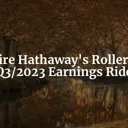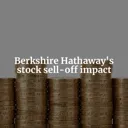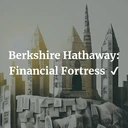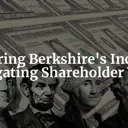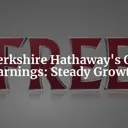Tags: Cash / Inflation
This fanpage is not officially affiliated with Berkshire Hathaway: Disclaimer
Introduction
Berkshire Hathaway's approximate $130 billion cash position in 2023 has raised questions among shareholders about the company's investment strategy. Charlie Munger, Warren Buffett's partner, has stated that the company is not buying anything because there is nothing they can stand buying at the moment. In this article, we will explore the reasons behind Berkshire Hathaway's cash hoard and its investment strategy.
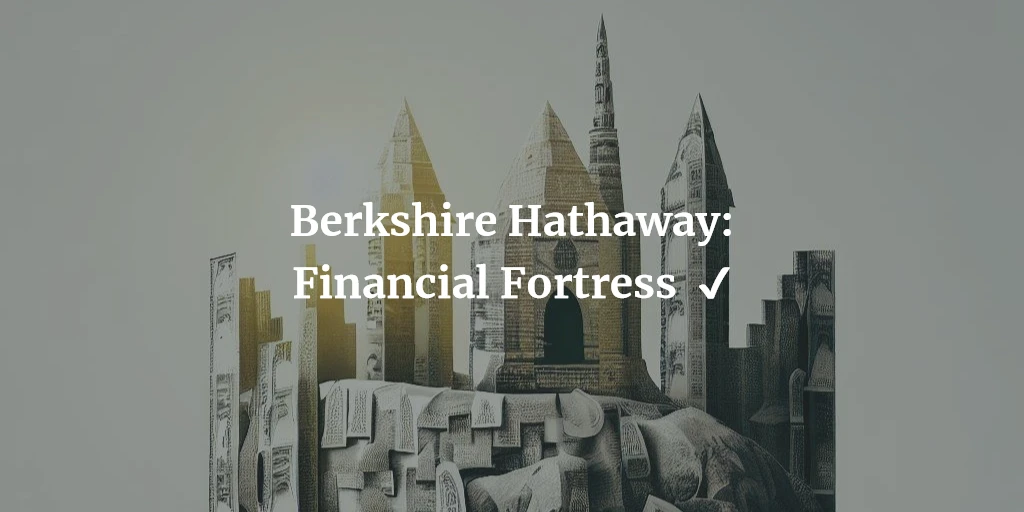
Limited Investment Options
Berkshire Hathaway's cash hoard is partly due to the limited investment options available to the company. One of the main limitations is that Berkshire Hathaway is legally restricted from buying more than 5% of a company without submitting a 13-D filing to the Securities and Exchange Commission (SEC). This restriction limits Berkshire Hathaway's ability to make significant investments in smaller companies.
Furthermore, regulatory restrictions on microcap investing have closed off another potential avenue for investment. Microcap companies, which have a market capitalization of less than $300 million, are often overlooked by large institutional investors due to their size and lack of liquidity. However, investing in microcap companies is not an option for Berkshire Hathaway due to regulatory restrictions.
Even if Berkshire Hathaway were to invest in microcap companies, the upside would be barely noticeable. The company's size and scale require significant investments to move the needle, making it difficult to find attractive investment opportunities.
Private market valuations have also remained quite richly valued relative to public markets, eliminating potential investment opportunities. Berkshire Hathaway has become so large that it can only really invest in other large companies in order to make investments that truly move the needle for it.
Investing within Circle of Competence
One of the key principles that guide Warren Buffett and Charlie Munger's investment decisions is to stay within their circle of competence. This means that they only invest in businesses that they have a deep understanding of and that have a durable competitive edge over their rivals. By following this principle, they avoid investing in industries or companies that they do not fully comprehend or that have uncertain prospects. Berkshire Hathaway's portfolio reflects this principle, as it consists mainly of Dow Jones Industrial businesses that have strong brands, loyal customers, and consistent earnings. However, this principle also has a downside: it narrows the pool of potential investments for Berkshire Hathaway and excludes many opportunities in emerging or innovative sectors.
Inflation and Interest Rates
Berkshire Hathaway's operating earnings may suffer from high inflation and rising interest rates, but its investment portfolio may benefit from lower asset prices. High inflation and rising interest rates tend to erode the purchasing power and profitability of businesses, especially those with high fixed costs or debt. However, they also create fear and panic among investors, who may sell their assets at depressed prices. This could provide an opportunity for Berkshire Hathaway to deploy its cash reserves and buy undervalued assets that have long-term growth potential.
Kass Recommendations for Buffett
David Kass, a finance professor at the University of Maryland, recommends that Buffett put more cash to work, such as continuing to increase his stake in Occidental Petroleum and accelerating his buying back of Berkshire shares. Kass believes that Berkshire Hathaway's ample cash reserves, strong brands, and prudent management will enable it to comfortably navigate a harsh economic environment.
Berkshire Hathaway's Resilience
As outlined, Berkshire Hathaway's cash hoard remains extremely large in 2023. However, the company's resilience and diversification across industries make it well-positioned for the future. Berkshire Hathaway has some great businesses that have proven to be inflation-resistant, such as See's Candies, which has increased its prices steadily since 1972 without losing customers, and its investment in Coca-Cola, which has paid dividends for over a century. In the event of a normal economic slowdown, experts anticipate Buffett to take advantage of panic and fear and scoop up bargains, as he did during the 2008 financial crisis when he bought stakes in Goldman Sachs and General Electric at depressed prices. Berkshire Hathaway prepares for the worst and hopes for the best, and can take advantage when competitors may not be in the same position. This strategy has paid off handsomely over the years, as the company's book value has grown at an average rate of 20%, compared to about 10% from the S&P 500 index with dividends included over the same period.
Conclusion
Berkshire Hathaway's cash hoard in 2023 is due to limited investment options, a focus on investing within its circle of competence, and regulatory restrictions on microcap investing. However, the emergence of equity crowdfunding and the potential for retail investors to invest in AI startups could lead to new investment opportunities for Berkshire Hathaway in the future. Berkshire Hathaway's ample cash reserves, strong brands, and prudent management will enable it to comfortably navigate a harsh economic environment. Shareholders who plan on holding Berkshire Hathaway for years into the future should hope for a near-term bear market in stocks, which would allow for Berkshire to choose between buying back its own stock at an advantageous price, buying shares of other businesses at intelligent prices, or possibly buying entire companies.
References.
- Berkshire Hathaway fourth-quarter operating earnings fall 8%, cash hoard swells to nearly $130 billion
- Billionaire Charlie Munger Reveals The Reason Berkshire Hathaway Is Sitting On $88 Billion in Cash Note: The title is misleading, Berkshire's Cash cushion is around $130 billion, see first reference.
- Charlie Munger Hoarding Cash: 'There’s Nothing We Can Stand Buying' - Our Approach
- Warren Buffett's Berkshire Hathaway faces a brutal mix of economic headwinds. It will capitalize on the chaos, 8 experts say.

